Trump’s NATO delusion is a triumph of rhetoric over reality
Donald Trump should be careful what he wishes for if he manages to pull the US out of NATO or even forces European nations to spend a lot more on their militaries.
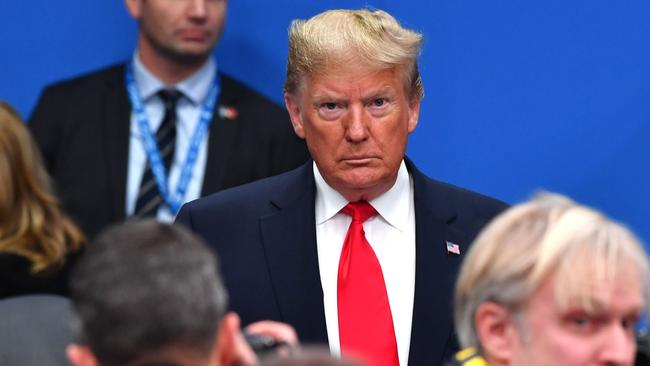
The popular idea – implied by Trump and his supporters – that the US protects its NATO allies out of some selfless, charitable impulse is laughable. The US extends its nuclear umbrella to NATO nations (and, let’s be honest, us too), most of which don’t have even the capacity to develop them, in exchange for power and influence.
The US has more than 750 military bases in more than 80 nations, according to the Cato Institute, ensuring significant de facto leverage over the governments of those nations. Sure, all this is expensive for American taxpayers, but it has given Washington unprecedented clout to impose its will throughout most of the world, even including targeted executions of individuals in foreign capitals, such as in Baghdad last week, against the wishes of Iraq, whose requests for the US to withdraw its troops have been ignored.
Is it really a coincidence that the 40-odd nations that backed the US-led sanctions against Russia have US military bases in them or depend largely on the US for their defence?
“The thing about being an empire is you can do that sort of stuff,” renowned historian Niall Ferguson told me last week when I asked him in an interview whether he thought the US might dump charges against Julian Assange amid international pressure.
“You can just say, well, all of that international law stuff is absolutely fine, but we’re the empire,” he added, in remarks that reflect the mysterious ways in which the rules-based global order often works.
Europeans have benefited from, if not welcomed, US imperialism, allowing them to spend vastly more on social services and infrastructure than the US, where about a fifth of tax revenue goes to the military (compared with about 6 per cent in Germany). But what would happen if Trump 2.0 withdrew the security blanket?
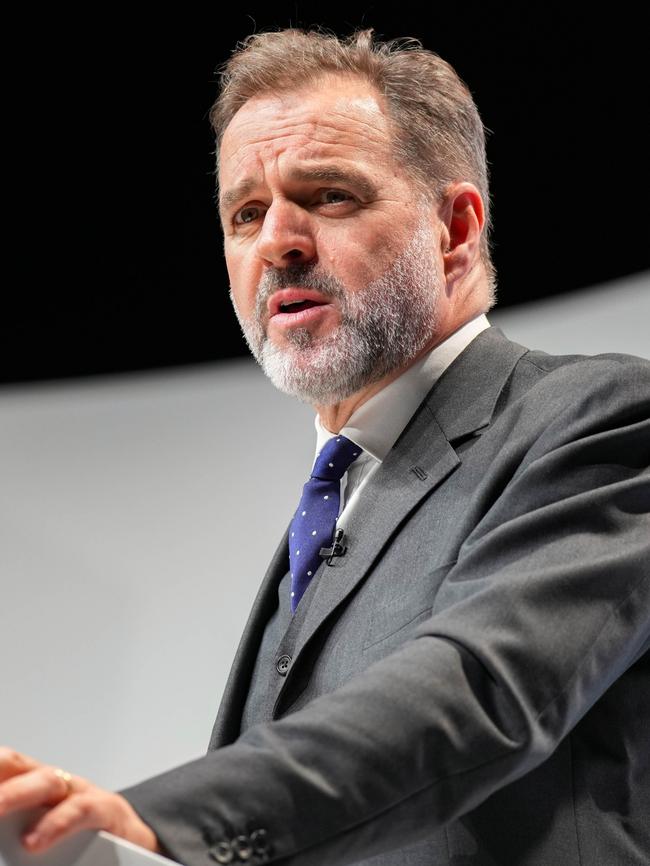
The 27 nations of the EU in 2023 spent about €270bn ($447.6bn) on their military. If they gradually had to double it – to spend more in line with the US – Washington’s influence would shrivel. It almost certainly would come under pressure to remove its big military bases from Germany, Spain and Italy by local nationalists, who would find their presence as humiliating as Charles de Gaulle did in France in 1967 when he kicked the Americans out.
Germany, which remarkably has prioritised US strategic interests over its own in Washington’s confrontation with Russia over Ukraine, may not be so acquiescent. For instance, Berlin might have been far angrier about the blowing up the Nord Stream pipeline, which would have sustained Germany’s former world leading, now terminal, manufacturing industry.
The Eisenhower administration mocked Britain’s and France’s pathetic attempts to regain control of the Suez Canal in 1956: does Washington really want these old European nations to have powerful militaries?
Maybe ordinary Americans are sick of being an empire. Trump must think they are, at least, opening a debate on NATO unthinkable even a decade ago.
The former president prompted a furore last week, revealing at a campaign rally that he had told an unnamed president the US wouldn’t defend them against attack if they were negligent in their defence expenditures, even going so far as to says he would encourage Russia to attack them.
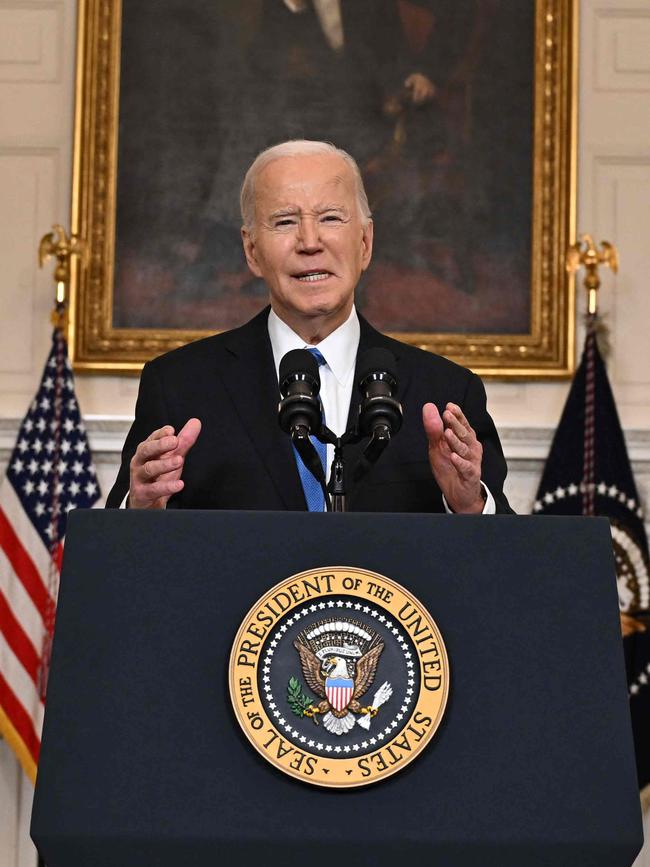
To the extent his recall was even accurate – it seems bizarre the shocked unnamed president or his staff didn’t leak this juicy bombshell from 2018 to the media – it was in keeping with Trump’s arguments about NATO for years, and US willingness to engage in foreign wars more broadly.
The US governing elite certainly benefits from NATO leadership, but it’s a harder case to make for ordinary Americans, many of whom see the determination among Democrats in congress to send $US95bn to Ukraine, Taiwan and Israel (or, more accurately, to American arms manufactures) as a reflection of the elite’s systematic ignorance of their concerns.
US taxpayers will be borrowing the lot at about 4.5 per cent interest, on top of the $US34 trillion the federal government already owes.
President Joe Biden’s attempt to sell NATO as in ordinary Americans’ interests is a reminder how brazenly silly some of rhetoric to justify NATO membership can be.
“Article five has only been invoked once, just once in our NATO history, and it was done to stand with America after we were attacked on 9/11,” Biden said. If you think NATO made a scintilla of difference to the US response to 9/11 I have a bridge to sell you. Indeed, it’s not obvious NATO, which underpinned the US triumph over communism, has been a net benefit to the world since the collapse of the Soviet Union.
In his interview last week with American conservative political commentator Tucker Carlson, Russian President Vladimir Putin said Bill Clinton and George Bush could confirm that Russia had asked repeatedly to join NATO after the collapse of the Soviet Union but it was rebuffed, a claim yet to be refuted by either former US president.
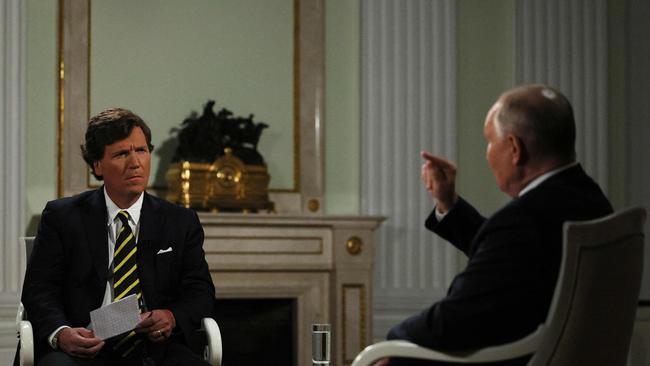
It is possible NATO’s expansion since has simply stoked Russian grievance and paranoia, however misguided, ultimately leading to a disastrous war that has killed hundreds of thousands of Ukrainians.
If Trump’s first term is any gauge for a second term, there’s next to no chance he’ll leave NATO, preferring his trademark controversial rhetoric to rocking the boat in any meaningful way.
That leaves one practical suggestion: as a businessman, he should at least replace the simplistic 2 per cent NATO minimum spending target for military expenditures with a target based on real military capabilities, which would encourage more prudent expenditure based on capability rather than price tag.
All governments and taxpayers should be able to unite around that.




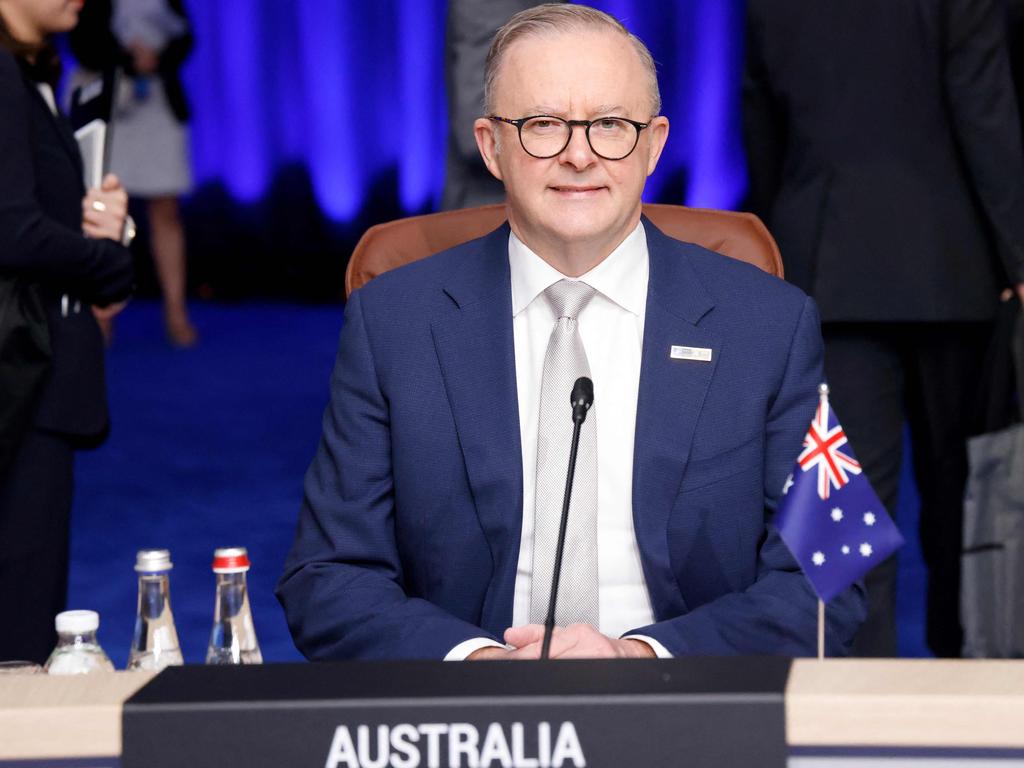



Donald Trump should be careful what he wishes for if he manages to pull the US out of NATO or even forces European nations to spend a lot more on their militaries. The US enjoys huge benefits from its pre-eminent military spending, at about $US1 trillion ($1.55 trillion) a year – more than all other NATO members combined.